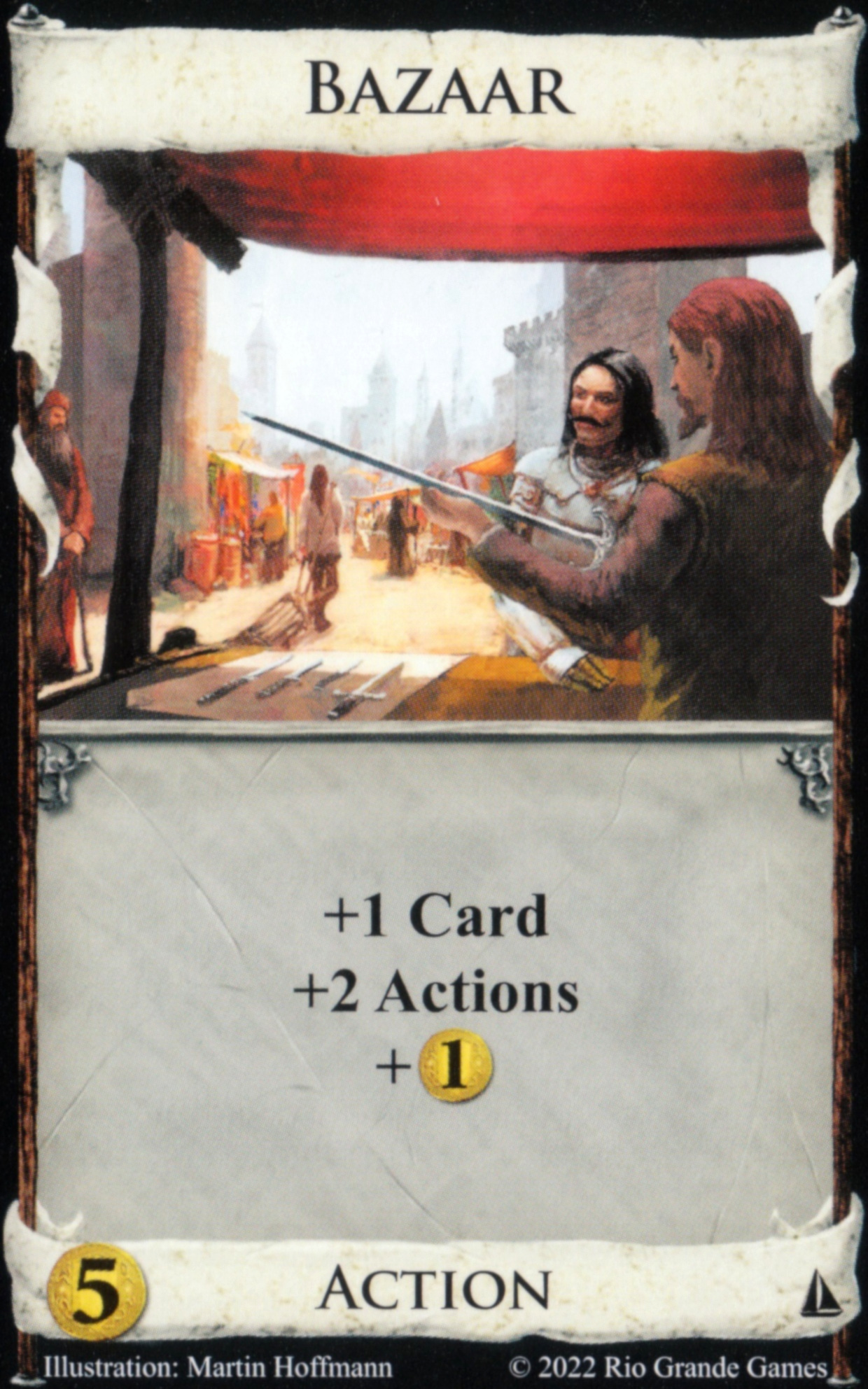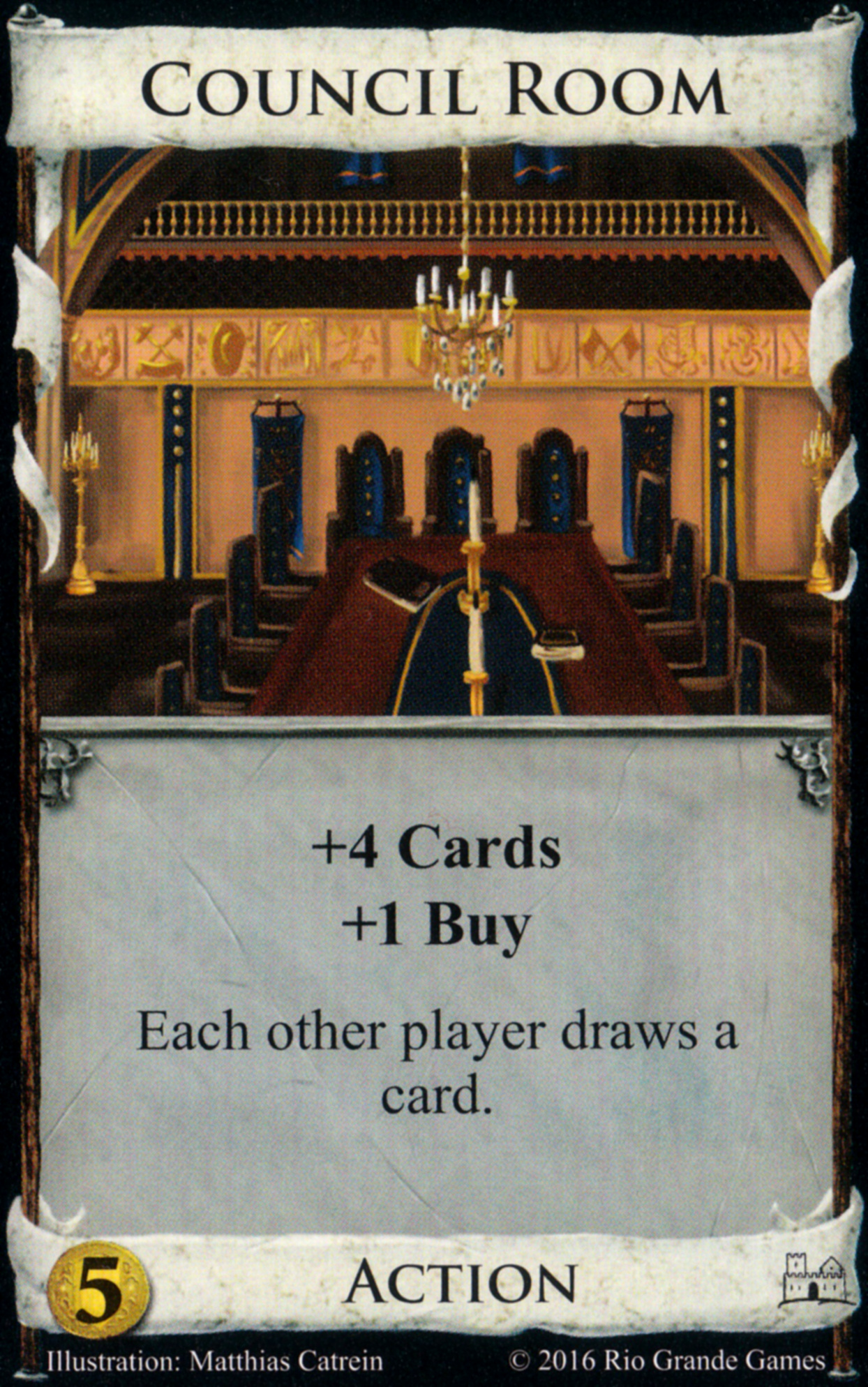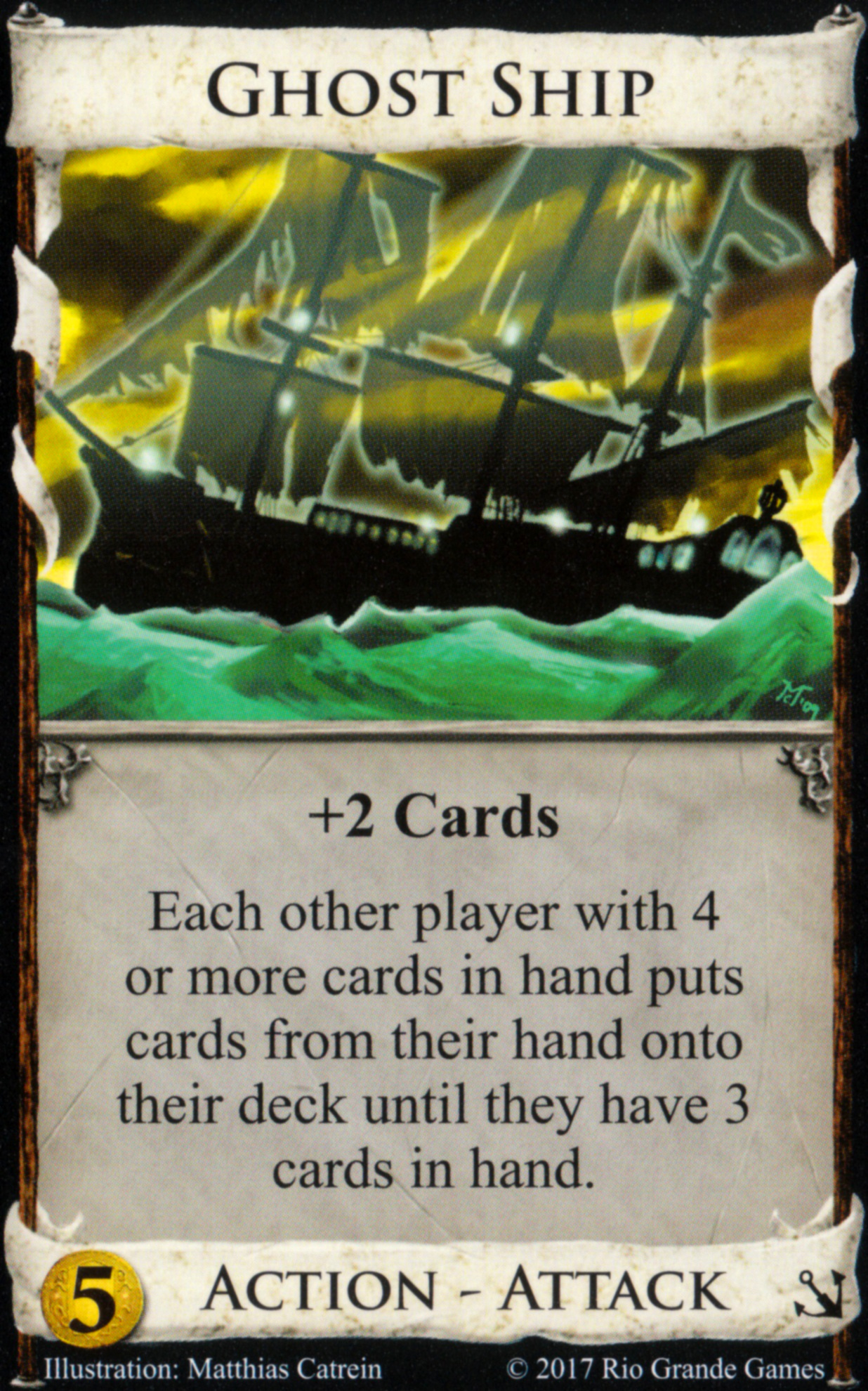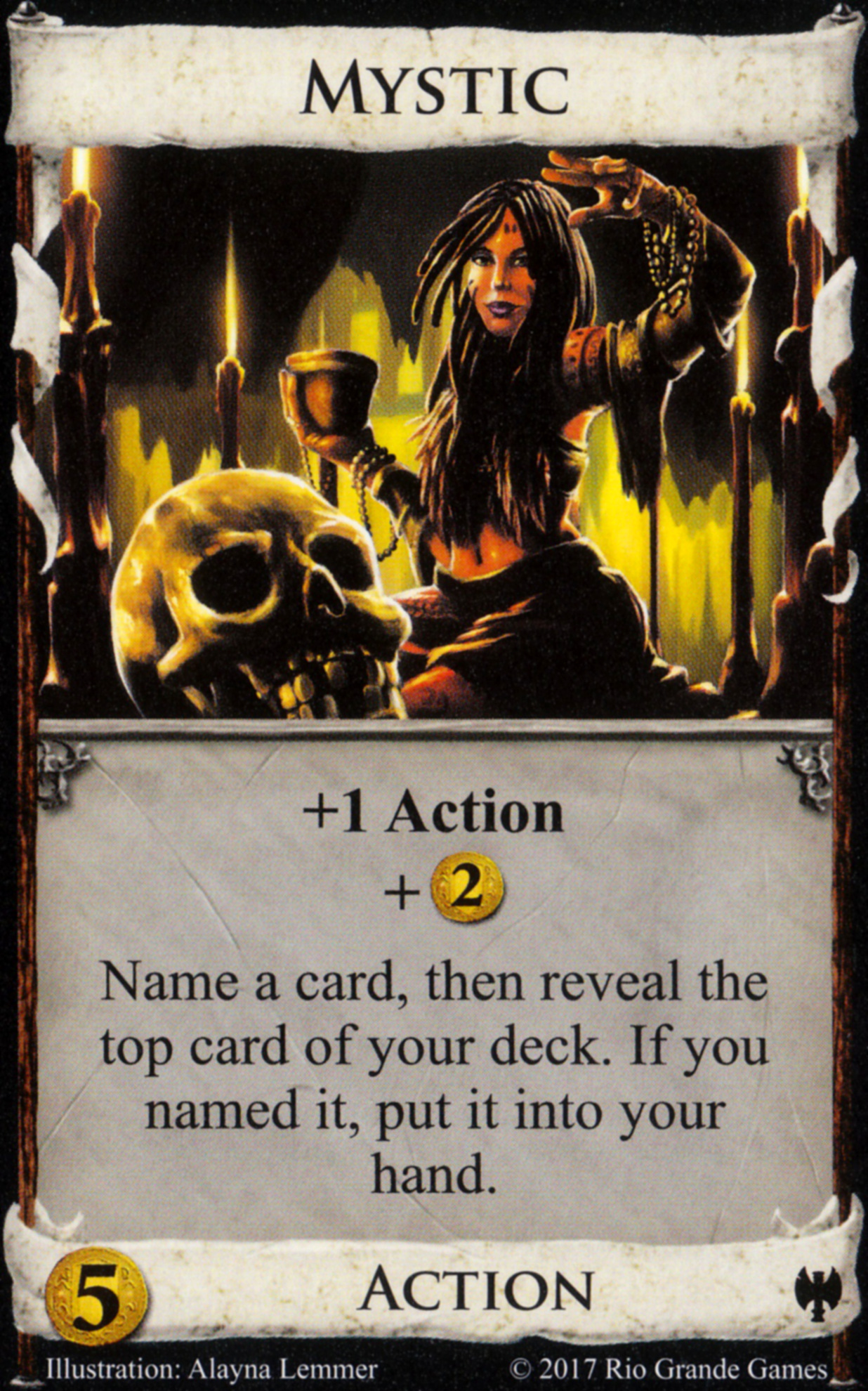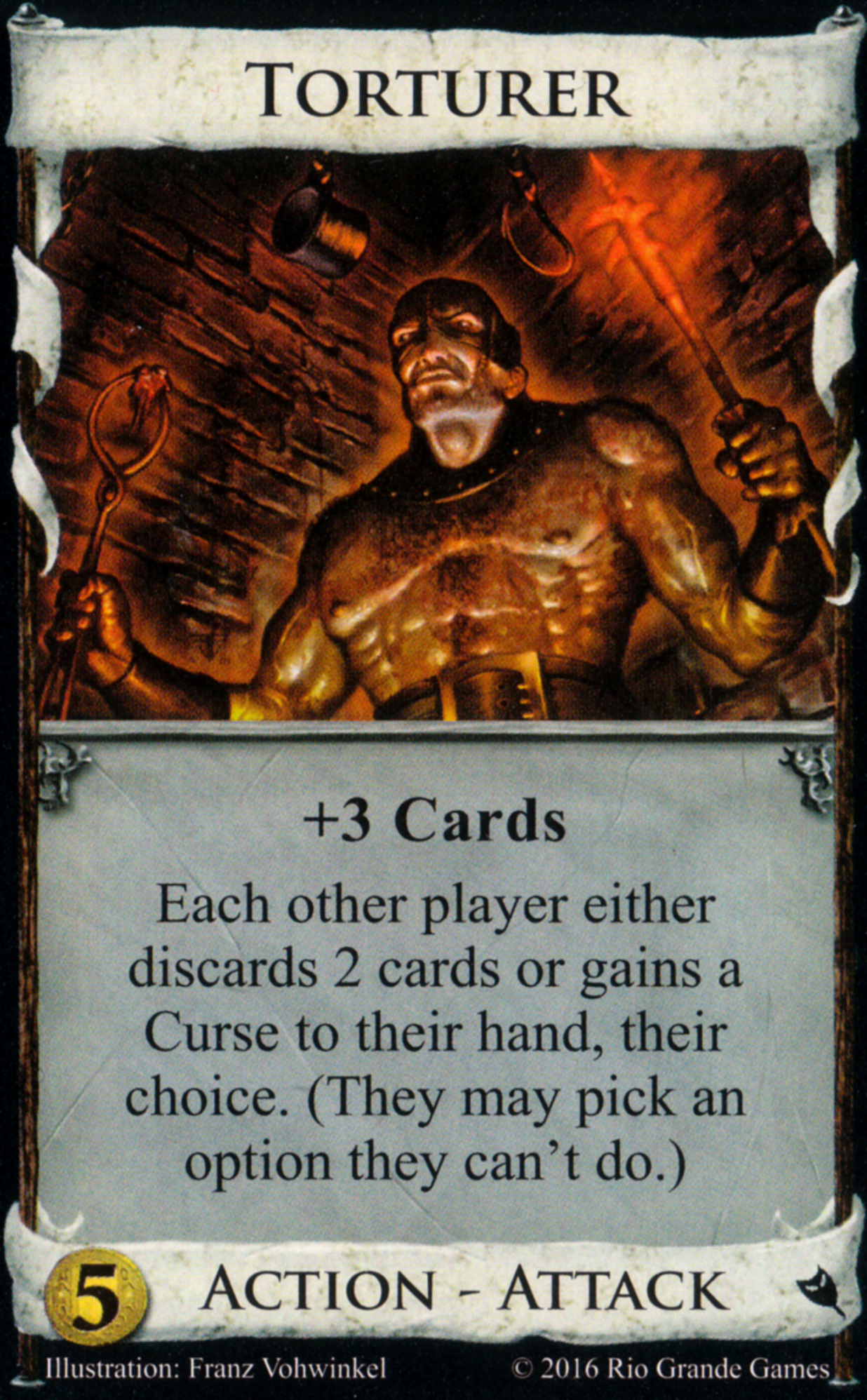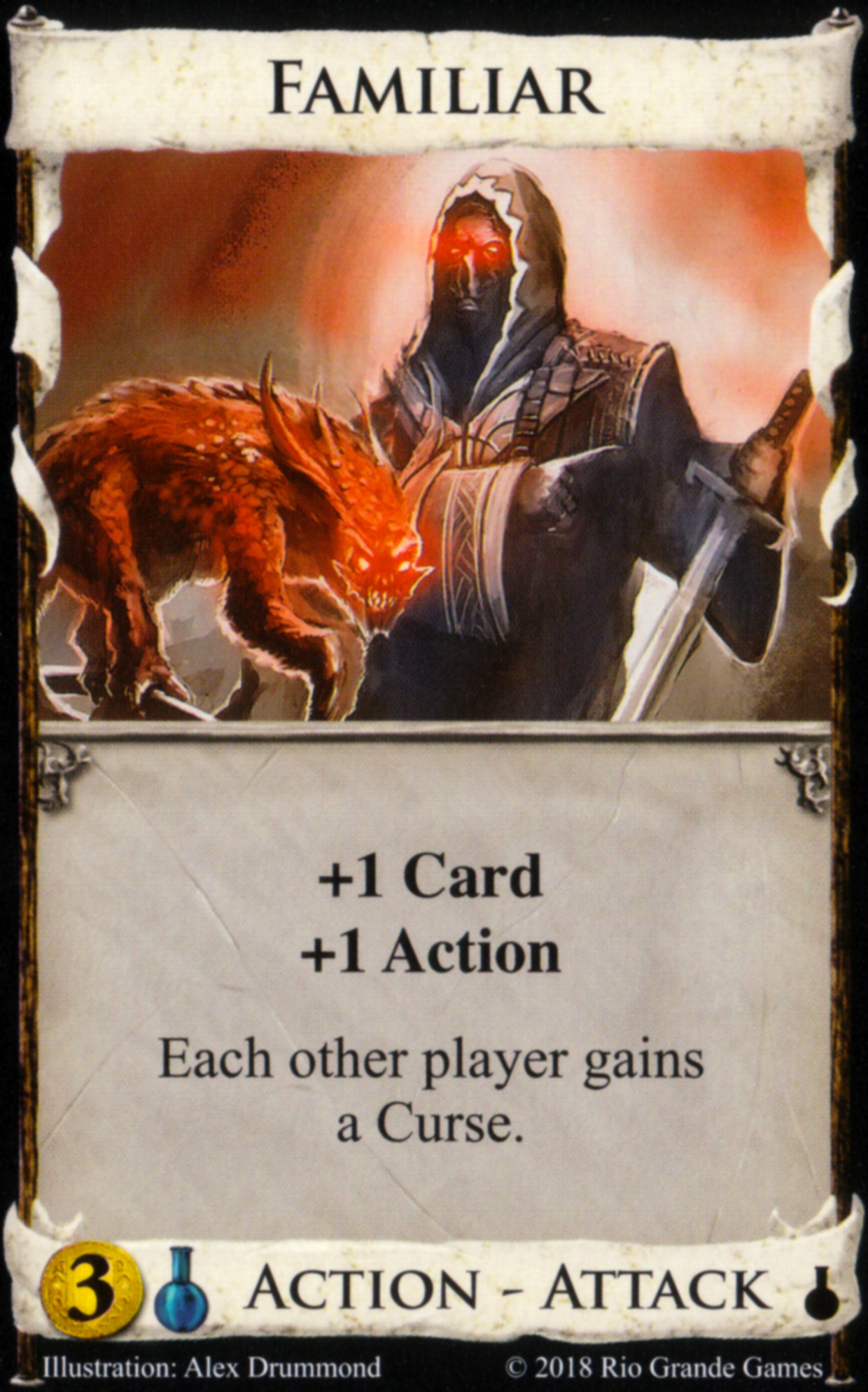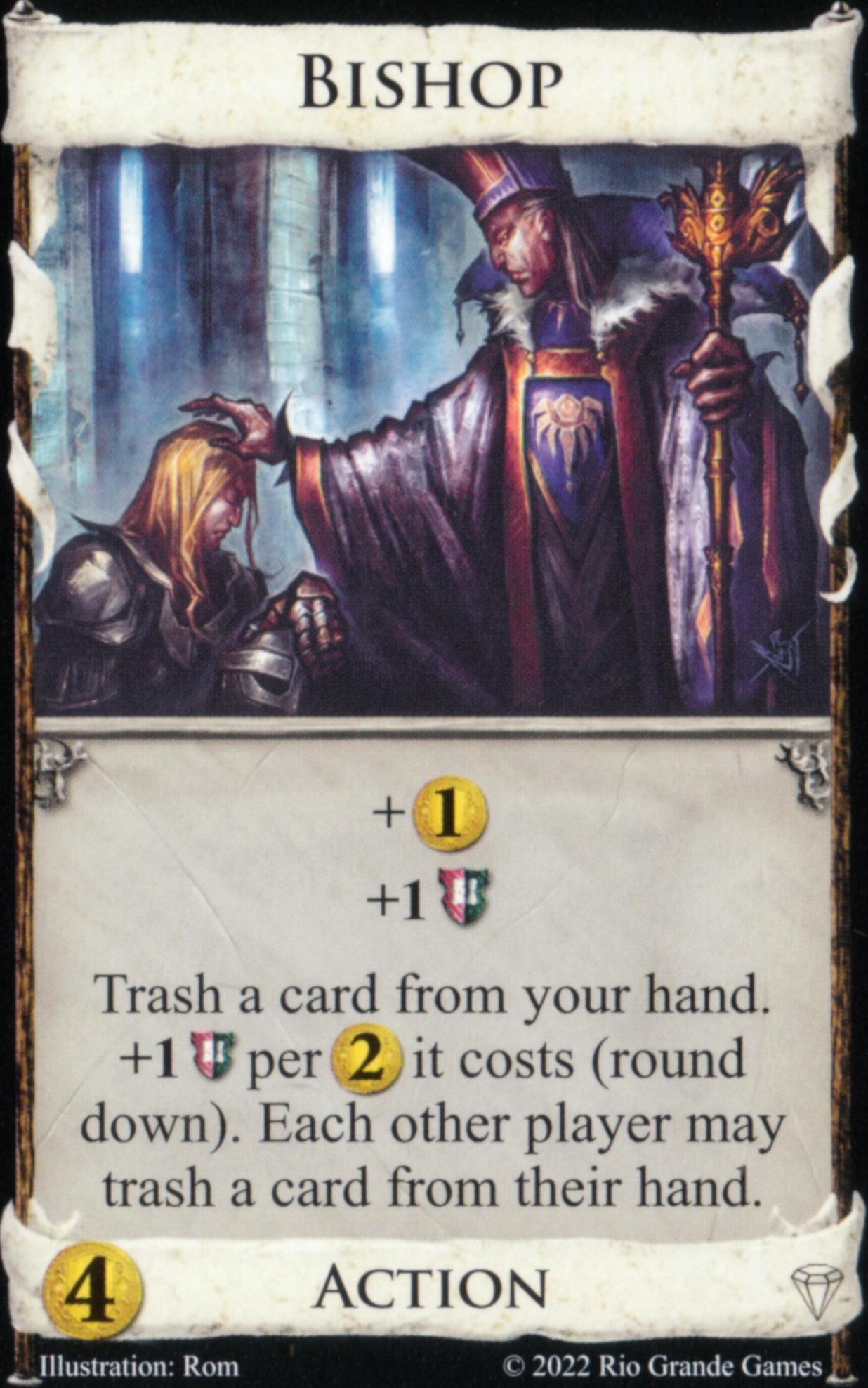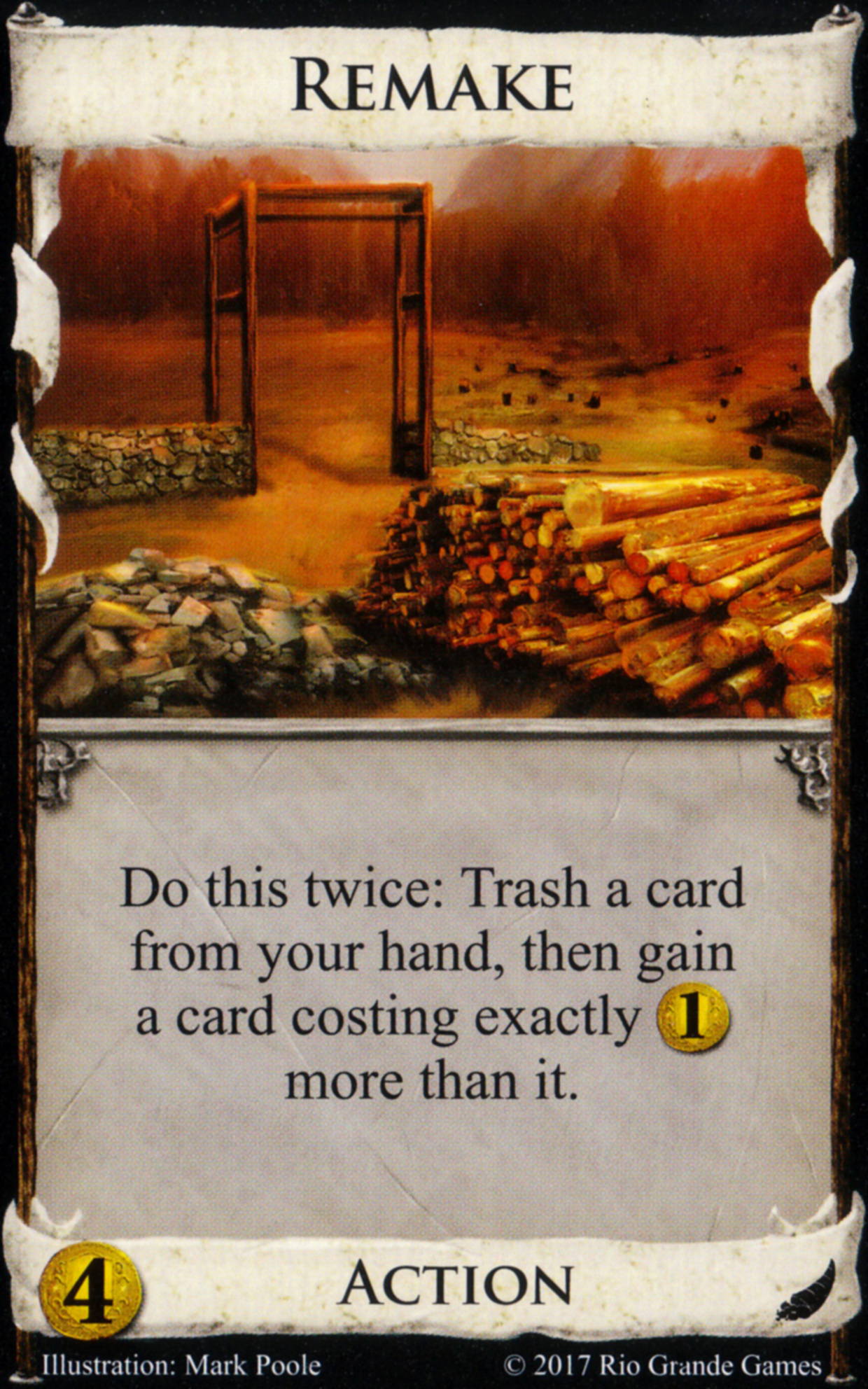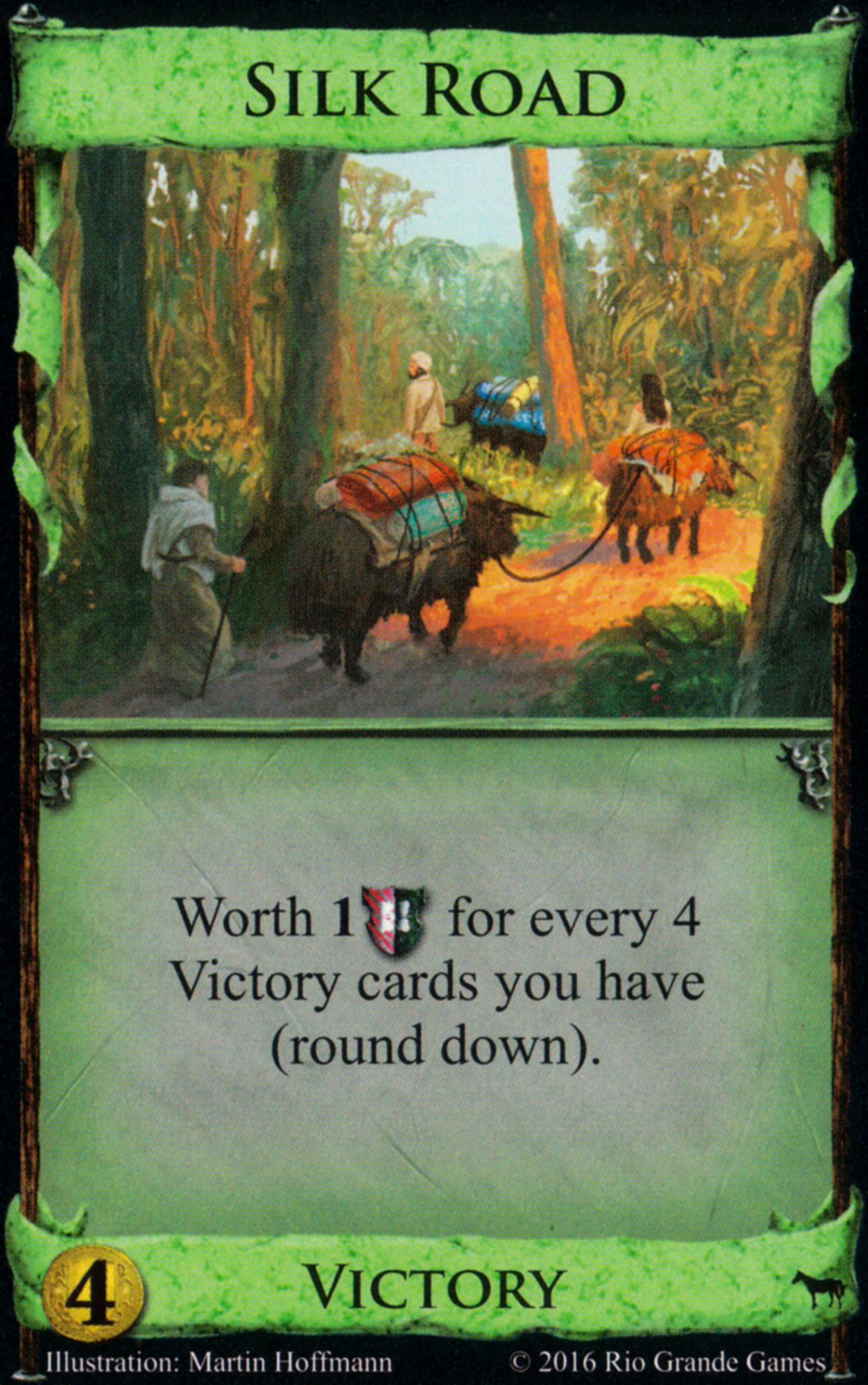1
Dominion Articles / Self-Synergy
« on: November 14, 2017, 10:10:12 am »
A Short Article on Self-Synergy
What is it?
For the purposes of this article, self-synergy can be any interaction of a card with a copy if itself.
What does it look like?
There's no limit here. It can be a workshop gaining a workshop. It can be a farmland trashing a farmland to gain a province. It can be a mandarin putting treasures on top of the deck so that you can buy another mandarin next turn. It can be repeated plays of an attack, perhaps by different players, that do more damage together.
Why is it important?
If there is one thing to take away from this article it is this: Self-synergy is important because it is always in the kingdom. At one time you could play Base Set Dominion and feel that the synergy between festival and library was important. Nowadays there are so many different Dominion cards that you might never play with festival and library in the same kingdom.
The consequence is that self-synergy should be very high on the list of things to learn when looking at new cards, no matter how exciting the synergy is between different cards.
The more complex concepts found in later expansions have self-synergy as an intrinsic part of the design, as seen with split piles, castles, and traveler cards. These cards require a lot of skill to play but a lot of that skill comes from an understanding of the self-synergy.
Combos
A number of well known combos, such as native village + bridge or ironworks + silk roads, are actually the combination of two strong self-synergies. If you can understand those self-synergies then you can start piecing together alternative combos in random kingdoms using different cards, tokens, and events.
Deck Building
This subject is really far too large to detail so here are a few things to consider.
How good are the products of using a card on itself? (procession, upgrade)
Does the synergy increase greatly when you add many copies of a card to a deck ? (advisors)
Will adding more copies of a card reduce the effectiveness of each one? (chariot race)
Are completely new strategies created when you use enough copies of a card? (rebuild, horn of plenty)
Is the self-synergy strong enough to make the card a key pile that needs contesting? (minions)
Are there times when self-synergy vanishes entirely? (farmland)
Does self-synergy help some uses of a card and hinder others? (native village)
Can you interfere with an opponent's strategy by having copies of their key card? (wild hunt, lurker)
What is it?
For the purposes of this article, self-synergy can be any interaction of a card with a copy if itself.
What does it look like?
There's no limit here. It can be a workshop gaining a workshop. It can be a farmland trashing a farmland to gain a province. It can be a mandarin putting treasures on top of the deck so that you can buy another mandarin next turn. It can be repeated plays of an attack, perhaps by different players, that do more damage together.
Why is it important?
If there is one thing to take away from this article it is this: Self-synergy is important because it is always in the kingdom. At one time you could play Base Set Dominion and feel that the synergy between festival and library was important. Nowadays there are so many different Dominion cards that you might never play with festival and library in the same kingdom.
The consequence is that self-synergy should be very high on the list of things to learn when looking at new cards, no matter how exciting the synergy is between different cards.
The more complex concepts found in later expansions have self-synergy as an intrinsic part of the design, as seen with split piles, castles, and traveler cards. These cards require a lot of skill to play but a lot of that skill comes from an understanding of the self-synergy.
Combos
A number of well known combos, such as native village + bridge or ironworks + silk roads, are actually the combination of two strong self-synergies. If you can understand those self-synergies then you can start piecing together alternative combos in random kingdoms using different cards, tokens, and events.
Deck Building
This subject is really far too large to detail so here are a few things to consider.
How good are the products of using a card on itself? (procession, upgrade)
Does the synergy increase greatly when you add many copies of a card to a deck ? (advisors)
Will adding more copies of a card reduce the effectiveness of each one? (chariot race)
Are completely new strategies created when you use enough copies of a card? (rebuild, horn of plenty)
Is the self-synergy strong enough to make the card a key pile that needs contesting? (minions)
Are there times when self-synergy vanishes entirely? (farmland)
Does self-synergy help some uses of a card and hinder others? (native village)
Can you interfere with an opponent's strategy by having copies of their key card? (wild hunt, lurker)


